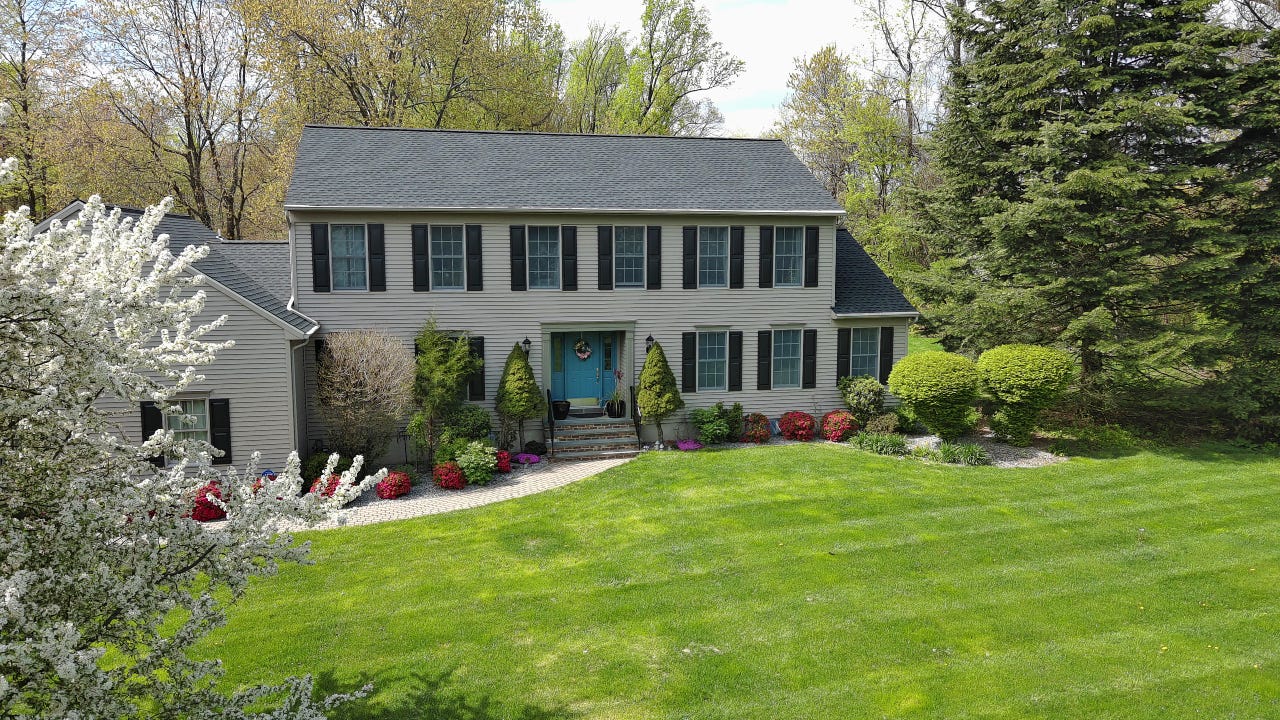Cost to buy a house in New Jersey

Over the past few years, the real estate market across the country hasn’t exactly been a walk in the park. Between continually climbing home prices and stubbornly high mortgage rates, buying a home is a very costly proposition.
New Jersey is a prime example: The median cost of a home in the Garden State today is more than 10 percent higher than it was a year ago, and is also more than $100K higher than the national median home price. Read on for everything you need to know about how much it costs to buy a house in New Jersey.
Cost to buy a house in New Jersey
The median price for a home in New Jersey is $550,400, according to June data from Redfin. That’s well above the national June median of $426,900. But the price of homes in New Jersey vary significantly based on location, especially in the markets closest to New York City.
In the North Jersey town of Montclair, for example, the median home price in June was a whopping $1.425 million. Meanwhile, in the beach town of Asbury Park it was $594,000, and in the capital of Trenton it was just $216,000.
Purchase price isn’t the only factor to consider, though. It’s a good idea to crunch the numbers and nail down exactly how much your monthly mortgage payments will be to ensure you’re shopping for a home that fits your budget. Bankrate’s mortgage calculator can help with this step: It shows that for a median-priced $550,400 New Jersey home, with a 20 percent down payment and a 30-year loan at 6.8 percent interest, the principal and interest payments would be $2,870 each month. The exact amount you’ll pay will change depending on your loan terms and your purchase price, and also by your individual property tax and homeowners insurance costs.
Down payment
Down payment is another important consideration when home shopping. The more you are able to put down, the less you’ll have to borrow. However, for a median-priced $550,400 home in New Jersey, a 20 percent down payment comes to more than $110,000 — that’s a steep expense, especially if you’re a first-time home buyer.
The good news is that you don’t necessarily need to put down a full 20 percent. Some conventional loans allow down payments of just 3 percent for qualified borrowers, while the down payment minimum for an FHA loan starts at 3.5 percent, depending on your credit score. And if you qualify for a VA or USDA loan, you may not have to put down any down payment at all. Keep in mind, though, that if you do put down less than 20 percent, you’ll likely have to pay for private mortgage insurance, which will be an added expense.
If down payment requirements are holding you back from homeownership, research down payment assistance programs in your area. New Jersey offers several first-time homebuyer programs available that can help first-timers cover their down payment and closing costs.
Closing costs
Closing costs are another big expense associated with homebuying. That’s especially true of closing costs in New Jersey, where the rate averages 1.7 percent of a home’s sale price, according to data from CoreLogic. For a median-priced $550,400 purchase, 1.7 percent comes to more than $9,300 in closing costs.
Fortunately, the buyer is not responsible for this full amount: Closing costs are typically split between buyers and sellers. Most closing costs for homebuyers, in New Jersey and elsewhere, typically center around securing a mortgage. Lender-related fees can be charged for applying for the loan, originating the loan, checking your credit, running a title search, having the home appraised and more. It’s also a good idea to have some cash set aside in reserve, just in case anything comes in over budget.
Real estate commissions are a closing cost that has traditionally fallen to the seller to pay. However, new rules go into effect in August that may result in buyers paying their own agents directly. Be sure your purchase and sale agreement spells out who pays which commission, and how much it will be, very clearly.
Cost to move
It’s not exactly a closing cost, but one area of expenses that can easily be overlooked is the cost to move your belongings to your new house. If you’re moving locally, this is likely to cost around $1,699 on average, according to HomeAdvisor. But the cost can vary depending on how much stuff you have and how far you’re going — if you’re moving from the southern part of New Jersey to the northern part, for example, the price can be much higher. And once you start settling in, you might find that your old furnishings don’t work as well in your new space. So be sure to account for the potential expense of new furniture too.
Homeownership costs
There are also many ongoing costs associated with owning a home. Homeowners always need to be prepared for unexpected or emergency expenses, whether it’s a broken air conditioning unit or a roof that needs to be repaired. It’s a good idea to have an emergency fund established to handle these types of curveballs. And if the house is part of a homeowners association, there will be regular dues to pay for that as well.
Property taxes are also no small expense. According to ATTOM Data Solutions, New Jersey homeowners pay among the highest property taxes in the country with an effective rate of 1.64 percent. The annual tax bill on the average single-family home in New Jersey in 2023 was $9,488.
In contrast, New Jersey is one of the country’s most affordable states for homeowners insurance premiums, another ongoing cost of homeownership. Its average cost is $1,149 for $300,000 in dwelling coverage — the national average is nearly twice as much.
Reducing costs to buy a house
Buying a home is a costly proposition. But there are some ways to pare the costs back, including:
- Request seller concessions: Asking the seller to cover some of your costs, like paying for a required expense or for one of your closing expenses, is worth trying. You might not have much leverage in a seller’s market, but sellers often agree to concessions in the interest of moving the deal along smoothly.
- Choose a smaller home: Bigger houses typically have bigger price tags, so ask yourself honestly: How much space do you really need? It may be better to stay smaller, at least for now — you can always upgrade down the line.
- Look in more affordable locations: While you may have your heart set on a specific neighborhood or community, keeping your mind open to other areas where costs are lower can help reduce purchase price.
- Shop around: Mortgage rates have been volatile lately — compare several different lenders to see who can offer you the best rate. And, with the addition of steep home prices, you may even want to wait out the market to see if rates or prices drop anytime soon.
Next steps
When navigating the complexities of the real estate market, it can help to have the guidance and expertise of a local real estate agent. An agent who is familiar with the market in your specific area can help you identify properties that fit your budget and lifestyle, and can be invaluable when negotiating. Consider asking friends and family for recommendations: If they had a good experience with their Realtor, chances are you will too. It’s also a good idea to interview at least two or three candidates and check out their online presence, including reviews from past clients.
FAQs
-
The median home price in New Jersey as of June 2024 was $550,400, according to Redfin. However, as in any state, prices can range very widely depending on size, amenities and specific location.
-
New Jersey has relatively high closing costs, averaging 1.7 percent of a home’s sale price. On a median-priced home of $550,400, that amounts to more than $9,000 in closing costs, not including real estate agent fees. However, that amount is not paid entirely by one party — both the buyer and the seller will pay their share.
Why we ask for feedback Your feedback helps us improve our content and services. It takes less than a minute to complete.
Your responses are anonymous and will only be used for improving our website.
You may also like

What documents do you need to finance a car?





